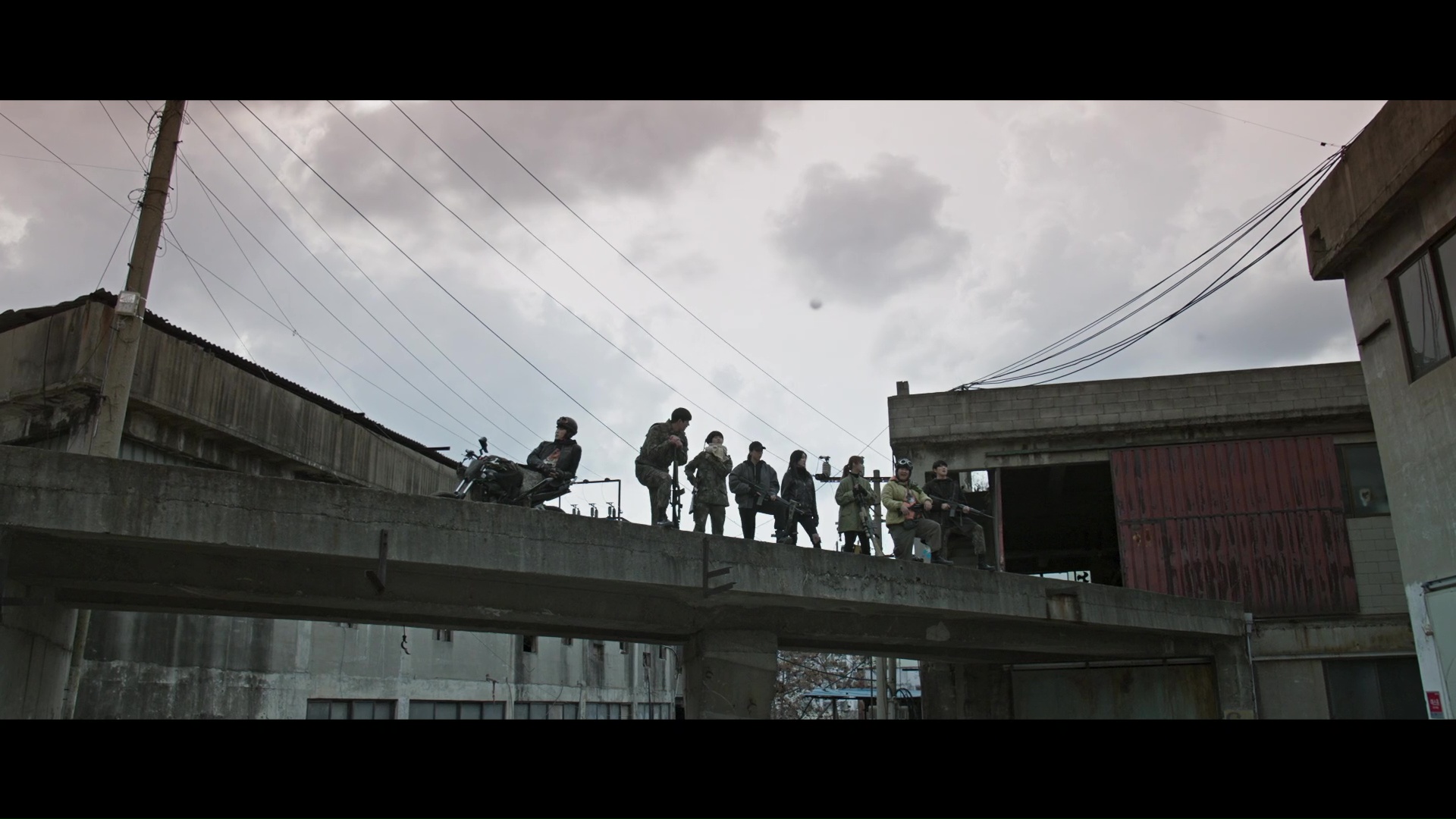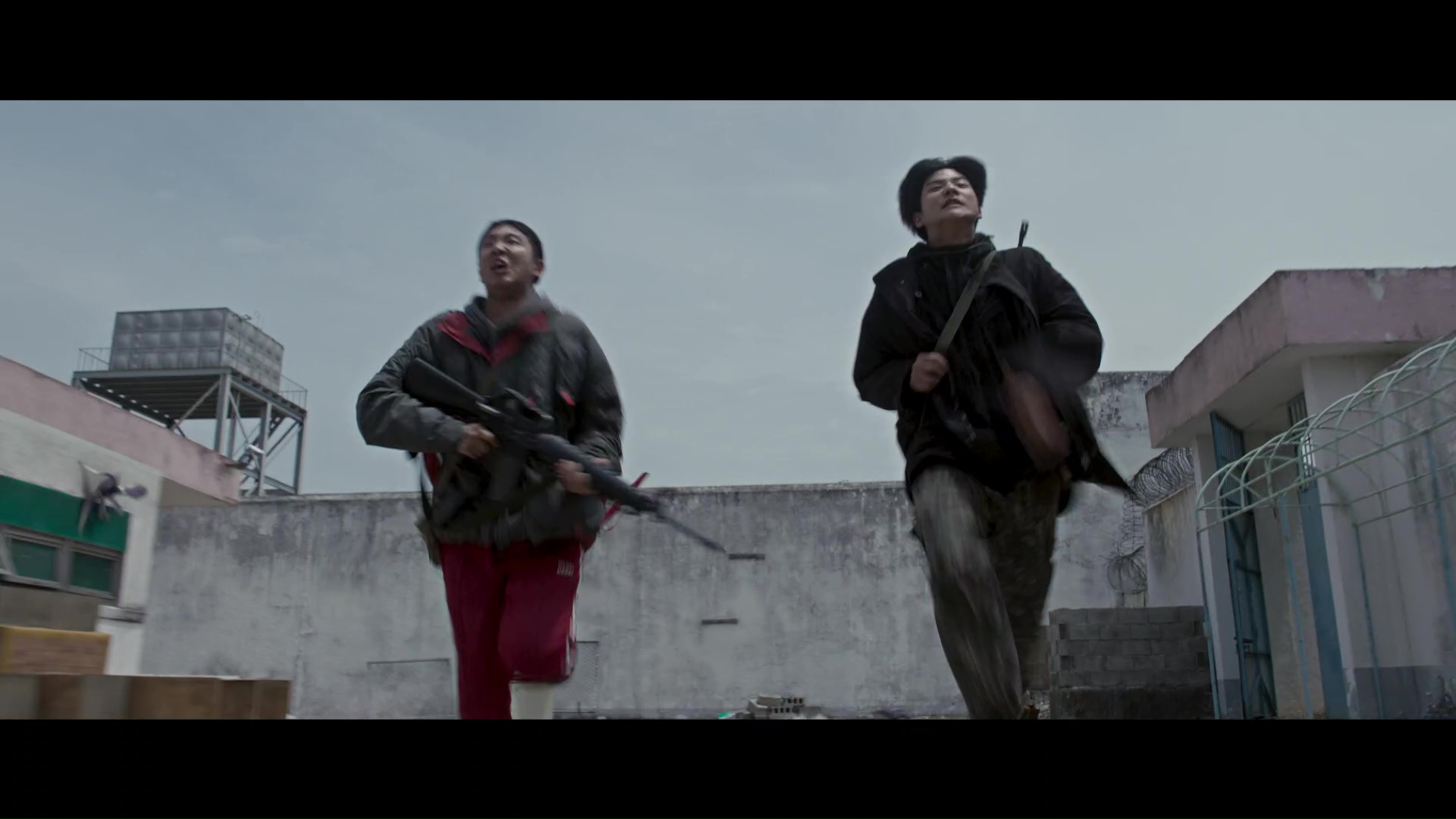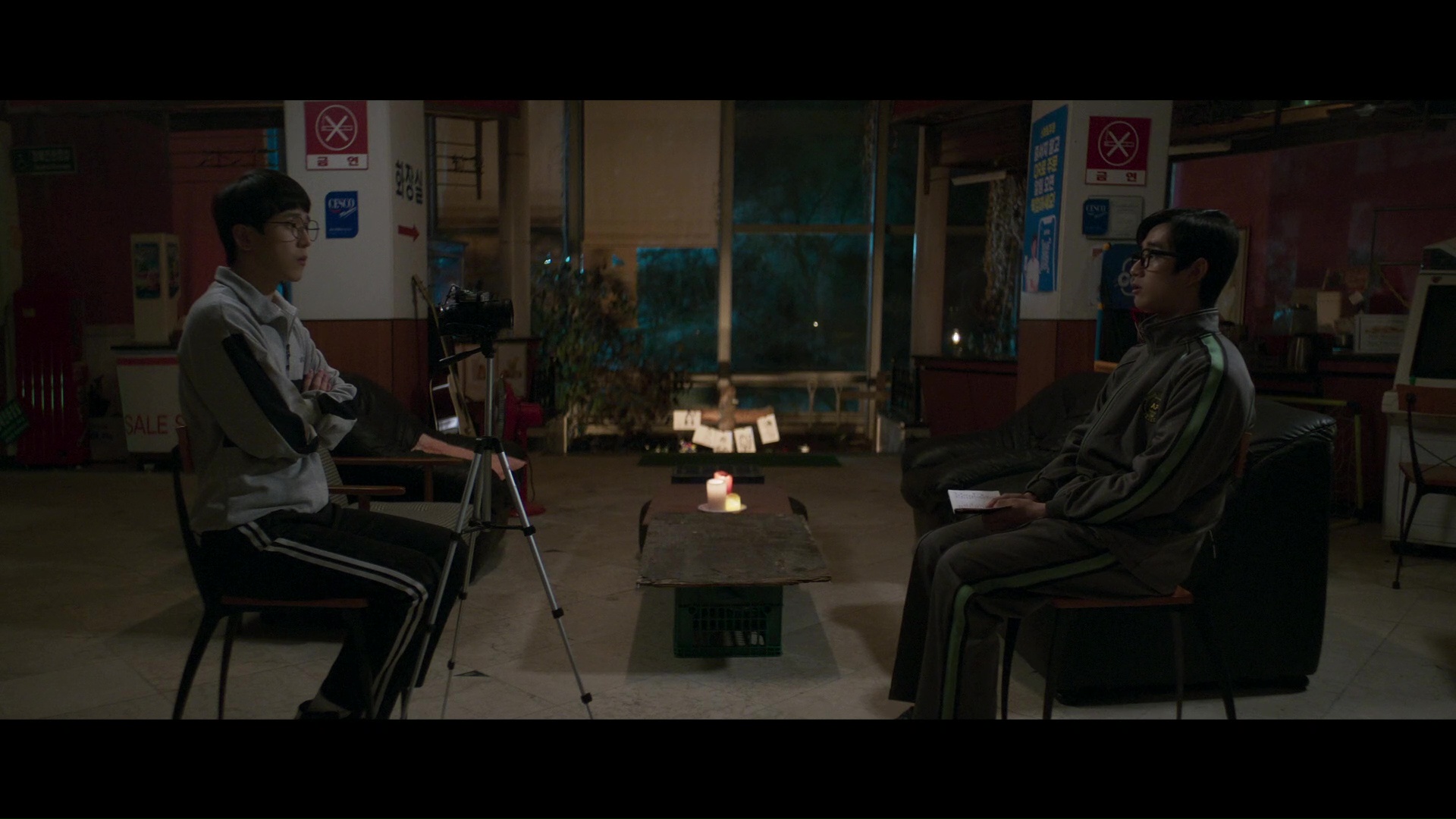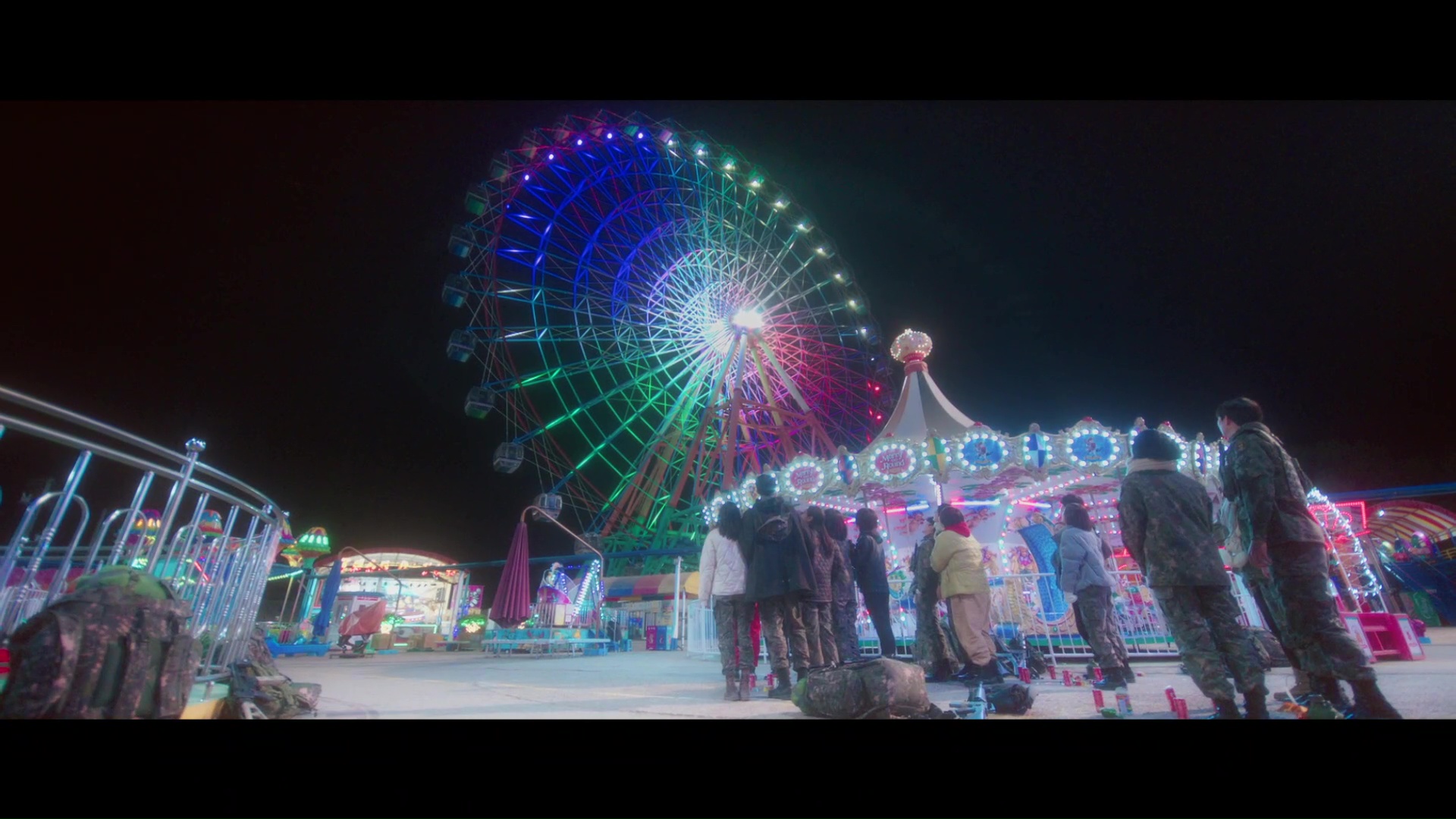
TYPE OF REVIEW ![]() : GOOD OL’ REVIEW
: GOOD OL’ REVIEW
MAJOR SPOILERS with fair warning before they begin. Click here for Review of Part 1.

The bottomline, up top, is that TVING’s Duty After School has a great premise, good ideas and slick production. But its plot-driven narrative and lack of depth hold it back from realizing its full and more meaningful potential.
I thought the first six episodes of TVING’s Duty After School (방과 후 전쟁활동/After School War Activites) had a lot of unrealized and wasted potential. Having more depth and sincerity could have elevated the series. But instead, the slick, high quality production and legitimately edge-of-your-seat action made the first seven hours of the series worth your time nonetheless.
Coming into “part 2” of the series, there was a certain expectation. Perhaps one of resolution and satisfaction. And that is with knowing the series isn’t going to be a deep character study or social critique. So how then could Duty After School somehow still come up short. Even worse than the first half of the series did.
The simple answer is that these four episodes suffered from the same things that affected the first six and are exacerbated by the events of the finale. Duty After School is definitely not a character-driven series. Especially with the events of the finale, it is not going to work if you don’t have strong enough characters to provide the necessary depth and connection to truly make it mean something.
And at least the first six episodes had plenty of alien octopus scenes. These four episodes contained the bare minimum in action sequences, thus all but removing what carried the first group of episodes to begin with.
Like the first six episodes, these final four were purely plot-driven. The major chunk of the four episodes being the teens’ encounter with abandoned prisoners. If it had been part of a bigger group of episodes, or even just straight through without any season split, the prisoner encounter would work very well as one of many vignettes in the teens’ fight for survival.

But as the main focus of these four episodes, it makes it seem as if this group of episodes exist merely for that singular plot. And that is while these four episodes come with the reasonable expectation of closure or at least, conclusion.
So when paired with the final episode, it comes across as abrupt and disconnected. These final four episodes feel rushed even with plenty of useless filler. Feel-good filler, sure. But filler nonetheless. Nothing to add to either plot or character development.
And that character development is sorely needed. The very first scenes of Episode 7 seemed to indicate that the students had done a lot of growing up in the one month since the events of Episode 6. They were out and about on their own, pretty effortlessly eliminating Spheres left and right while also having been able to set up a safe haven for themselves and a more organized approach to survival.tt
But of course, leave it up to this group of teens to mess it all up. Almost immediately, they revert back to their shallow, whiny selves which lead to familiar questionable decisions. The cycle would repeat itself a few times across the four episodes, furthering the idea that the series was more intent on plot driven shock and awe rather than genuine character development. And even the nicer, more tolerable characters are subjected to finger pointing by the mob without any resolution.
The excuse thrown around by some people after the first six episodes was that “They’re just teens.” But misplaced motivations and dumb decisions can’t merely be waved off when the series itself establishes that, at random times, they have grown, even just a little, from their previous selves. Switching back and forth between showing them as capable, matured fighters and whiny brats who are intent on making the worst decisions possible; it almost makes the final episode make much more sense.
MAJOR FINALE SPOILERS AHEAD (But if you’re here, you’ve probably already seen the final episode and are looking for some semblance of sense in what happened. This is my take on it.)

The series very heavily focuses on the pressures of education in Korea. In fact, the CSAT is a very central plot point throughout the series and especially in the finale. But this isn’t the critique on the Korean education system that some might want to portray it as.
The finale sees the character of Young Soo (Ahn Do Kyu) killing most of his classmates in a highly-charged and bloody massacre. In the penultimate episode, Young Soo reveals to Chi Yeol (Kim Ki Hae) through one of the video interview sessions that he is working hard to ace the CSAT and get into the best university as he sees it to be the only path for him and his family for a better life. He lays out how he and his siblings barely even talk to their parents who are working all day. And despite their hard work, their family cannot escape poverty.
This last minute reveal adds a bit of the only depth the series has, explaining Young Soo’s repeatedly exasperated concerns about the CSAT. Having dedicated pretty much his entire life to the singular test that could make or break one’s future (based on Korean society) and now being told that all that studying was for nothing coupled and the realization that all their fighting now (for extra CSAT points) was also for nothing; that will weigh heavily on any person. Not to mention also having to fight off alien squid and having to deal with annoying, sometimes verbally and emotionally abusive classmates too.
This isn’t a justification of mass murder of course. But it at least offers up a way to understand how someone may just snap or explode. Considering the situation they’re all in, someone snapping is probably one of the more realistic things to happen in this series.
But the series’ odd pacing and refusal to go beyond mere caricatures of people dilute the social critique and meaningful impact the massacre should have had. That lack of depth in the previous episodes takes away what should have been a series-long profound discussion about the dangers and evil that lurk in the everyday human world rather than the slimy purple aliens from space. That Korea’s education system is partly corrupted by adults failing their children.
A monologue from Chi Yeol in the finale seemingly tries to gaslight the audience into thinking that’s what the series was about all along. But it is not.
After the first six episodes, I decided to read the webtoon which the series is adapted from. And there are certainly differences, particularly with how deadly the massacre is in the end. The tweaks occur throughout the series. So the path getting to that climactic moment in the finale are different between webtoon and TV series. But the changes the TV series makes to the story do more harm than good, even opening up plot holes that did not exist in the source material.
The webtoon, somehow in its more limited format, is able to present a much more cohesive narrative and with character development. That in turn makes the ending much more palatable and understandable. And yes, much more realistic while still maintaining the obviously fantastical nature of an invasion of alien octopuses capable of decapitating humans.
The webtoon touches upon critiques, while also offering up bits of realistic hope as well.
(And I definitely recommend reading the webtoon which is a short, easy read.)
It really all boils down to the series being unable to write their characters in a way that provokes the discussion it seemingly wants to have. One-dimensional characters will result in hollow story. And that’s pretty much what happens in the final episode.
Again, much of the problems of these four episodes are just extensions of what marred the first six. But with the added expectation of closure and satisfaction, the series merely provokes the question “What could’ve been?”

Ultimately, Duty After School is the kind of series that unfortunately drops the ball while attempting to be something it is incapable of being. At least, in the way they decided to execute those ideas. The final four episodes remove the only things that made the first six episodes mindless fun. That is, the thrilling alien-fighting action sequences. Without those scenes, the series’ flaws are more visibly exposed. And in the end, draws more attention to what the series could’ve been rather than what it actually ended up being.
